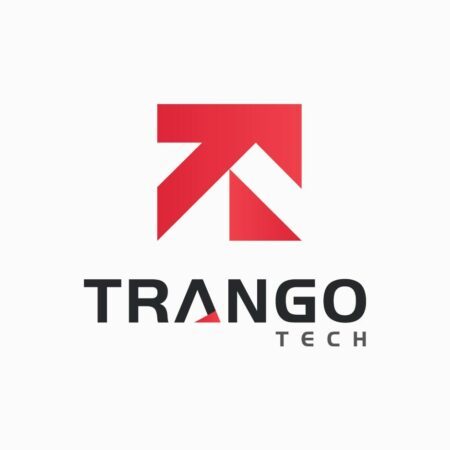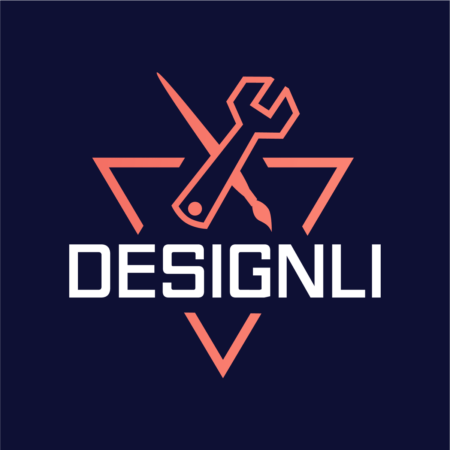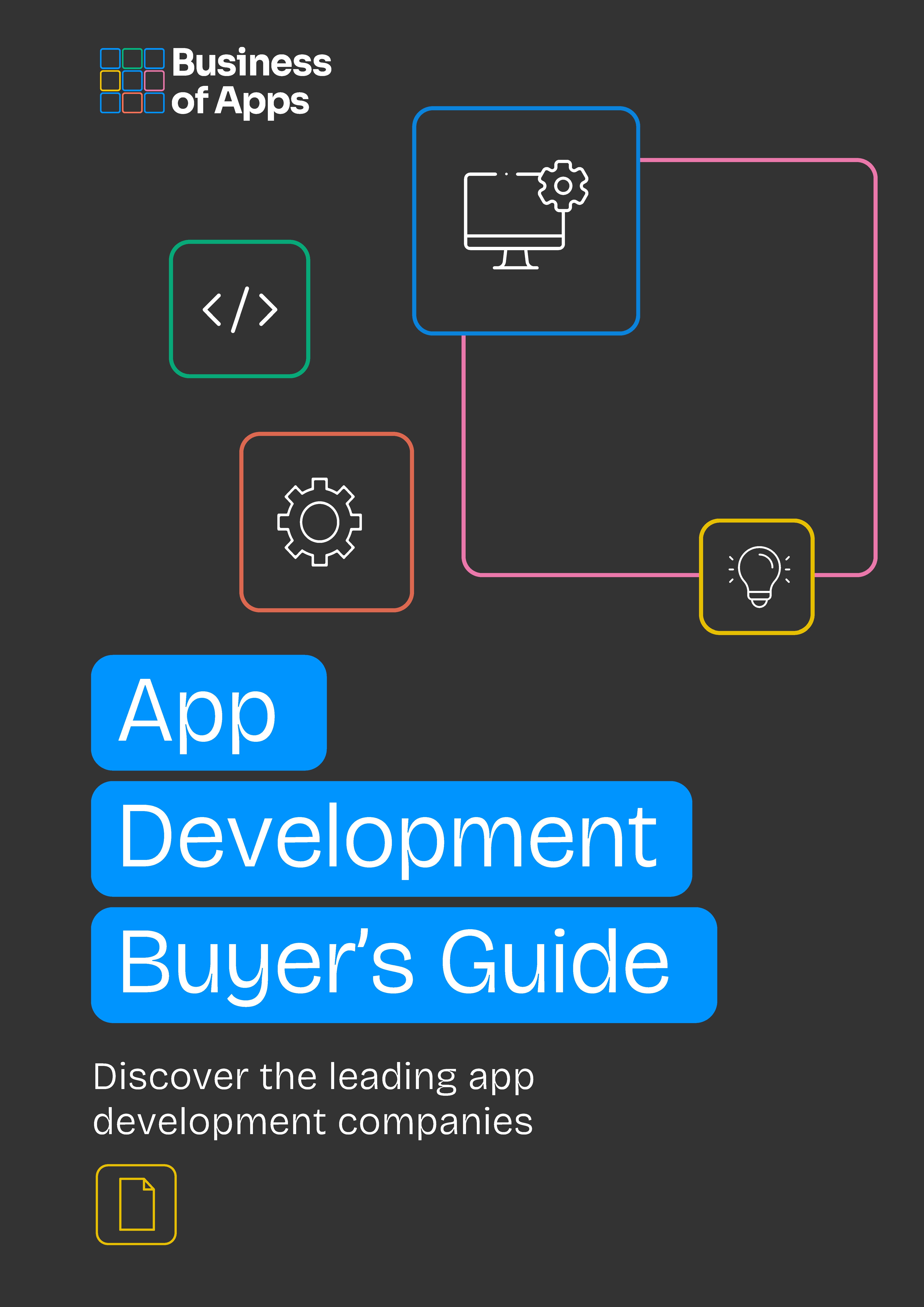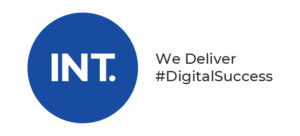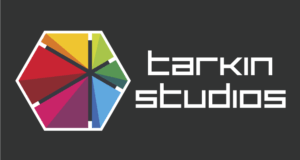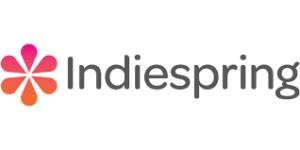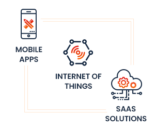This guide will cover the best startup app development services, how much it costs, top app development features, and how you stand to benefit from using startup app development companies.
Startup apps allow companies to engage with their customers on a level that other platforms can’t match—this is achieved through demographic and location data.
Like any industry, building and developing startup apps requires several must-have features. A good startup app needs to have an intuitive UI that loads fast while promoting other products and services.
Mobile apps can specifically reach a younger demographic than other platforms, but that also means the design needs to be as responsive as possible with a smooth experience from start to finish.
A mobile app won’t be the right choice for every business, but it needs some serious consideration nonetheless.
Need help knowing where to start? We’ll cover everything you need to know about startup app development.
What is a startup app?
Apps for startups have become a crucial marketing tool, and they serve as a way for small businesses to communicate and grow their customer base.
In a nutshell: they are mobile apps that help small businesses to engage their customers.
App Development Buyer's Guide
Download our App Development Buyer’s Guide to get a full list of the best service providers on the market to choose from. You will also learn about types of app developers, different app development platforms, app developer locations, app development costs, how to select the right one for your business, as well as the questions to ask any of those companies you will be evaluating.
Startup apps are a popular category on the app stores for good reason: over half of all millennial-owned businesses have an app, and 42% of all small businesses have one.
Mobile apps are a great way to build a relationship with your customers as well as increase customer loyalty, and you can use them to send push notifications to communicate with your customers with ease.
You can also ensure that customers can contact you to resolve their complaints, as well as increase your sales and referrals.
They’re a key part of your marketing strategy and enable you to compete with the big players in the industry.
Top Startup App Developers
There are plenty of startup apps available on both the Android and Apple marketplaces today, so your app will need to offer a great experience to stand out.
Types of startup apps
Examples of mobile startup apps include the following:
- Augmented reality apps
- Language learning apps
- Video-editing apps
- Business tips apps
- Financial forum apps
Startup app developer example
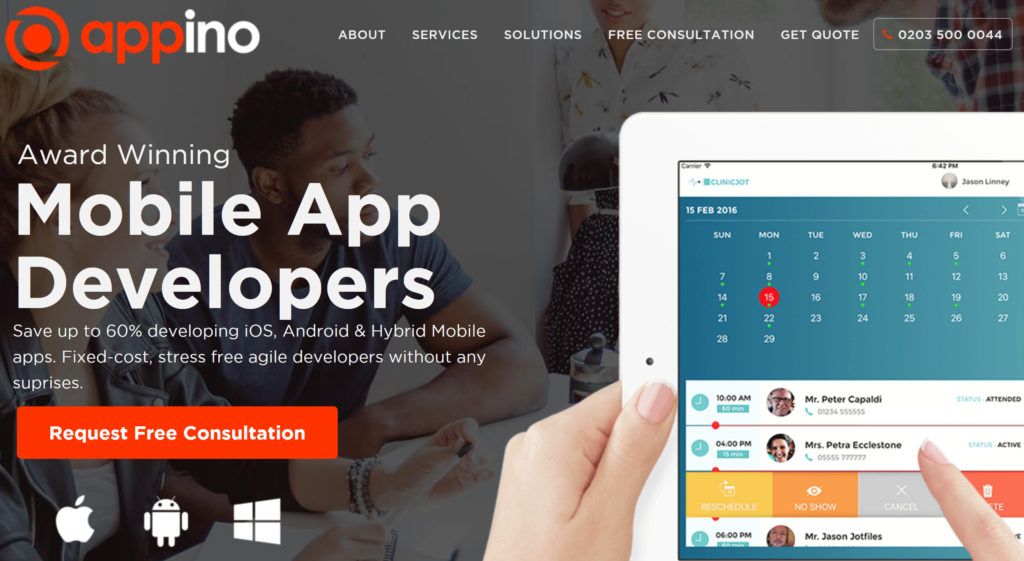 Source: Appino
Source: Appino
For example, a business tips app can help young entrepreneurs in difficult situations and provides them with a forum-like app where they can discuss different strategies and techniques needed to create a successful business.
More broadly speaking, startup apps can include any app that complements your business idea.
For instance, a goods transporter startup may have a mobile app that can provide information about the vehicles that are available to transport the goods or other useful information.
The app, in this case, would be able to talk directly to customers and keep them engaged and updated.
Think carefully about your startup and the type of app that would work best with it.
Why should I develop a startup app?
For many reasons, although arguably the biggest benefit to having your own app is the ability to send push notifications to users.
This feature allows you to keep your users engaged and reachable whenever you need to contact them. Sending notifications via email with links back to your platform is also an effective strategy that most startups will benefit from overall.
Of course, simply having your brand icon on the home screen of a user’s phone means you’re more likely to stay on their mind, and two-way communication allows them to contact you should issues arise.
Web apps can be even more effective here as the effort to design, program, and optimize pages for apps is often time-consuming for a development team, more so than it is for web apps.
Having a dedicated mobile app for your startup business also makes it more reputable for your customers–it creates a professional business look and can increase sales and engagement.
Startup app developer example
 Source: Uinno
Source: Uinno
Not to mention that a great mobile app provides customers with all the details of your products and services and is a respectable way of communicating with staff.
Startup mobile app development provides a social platform for your business, and there is a lot you can do once your app is live, such as creating new posts, using forums, and in-app messaging.
The overall return on investment from startup apps is more than worth it for small businesses that need that extra help during the key growth stage.
What is the startup app development process?
You need to develop the best startup app possible. One that loads quickly, runs smoothly, provides location-based services, and doesn’t suffer from constant bugs.
Building a good startup app is about following a well-defined process that ensures nothing gets missed during the mobile app’s development, from conducting market research to ongoing maintenance. Let’s take a look.
1. Define your strategy
First, you need to define the strategy for evolving your idea into a successful mobile app.
While one app’s objectives typically differ from another, there is still an app-specific impact that your strategy will need to address during the development process.
You’ll need to identify your primary app users and research the competition, as well as establish the app’s goals and objectives.
Be sure to decide on the mobile platform(s) for your app as well.
2. Planning and analysis
Analysis and planning are where you begin to define the use cases for your mobile app and create a list of functional requirements.
Once you have identified the requirements for your app, you’ll need to prepare a product roadmap and prioritise the app’s requirements. Be sure to group them into achievable milestones.
When resources are a concern, you’ll need to define your minimum viable product (MVP) and prioritize this for the initial launch.
3. UX design
A mobile app needs to deliver a flawless user experience while offering a professional look overall.
The success of a mobile app hinges on how well users are adopting and benefiting from all of its features, so this stage is crucial to success.
The goal of mobile app UI design is to create great user experiences that make your app interactive and easy to use.
While UI designs will help with early adoption, your app must have intuitive user experiences that keep app users engaged.
Mockups are the final renderings of your app’s visual design, and it’s here that your app’s design begins to finalise; expect further modifications to its information architecture, workflow, and aesthetics as you go along.
4. App development and tech stack
Planning, of course, remains a key part of this stage in the startup app development process, and you’ll have to achieve the following:
- Define your technical architecture
- Choose a tech stack
- Define your development milestones
A typical app project is made up of three key parts: back-end technology, API(s), and the mobile app front-end.
With platforms and devices constantly changing, agility is essential for building mobile apps within your given timeline and budget.
If you need to get the app to market quickly, use an agile development approach, as this supports frequent software releases with top-notch functionality.
Startup app developer example
 Source: Tech Exactly
Source: Tech Exactly
5. Testing the app
Executing thorough quality assurance (QA) testing during the mobile app development process makes apps secure.
That said, to ensure comprehensive testing of your app, you first need to prepare test cases that address all aspects of the app.
Test cases are for recording testing results for software quality evaluation and tracking fixes for retesting purposes.
A best practice here is to involve your QA team in the analysis and later design stages, as their familiarity with your app’s requirements and objectives will help produce the most accurate test cases.
6. Deployment and support
Releasing a native mobile app requires submitting your app to the app stores; the Apple App Store and Google Play.
You’ll need a developer account with Apple and the Google Play Store before launching your mobile app. An app’s release in the app store also requires you to prepare key metadata, including the following:
- Your app’s title
- A description
- Category
- Keywords
- Launch icon
- Screenshots for the store
Once submitted to the Apple App Store, iOS apps go through a review process which may take from a few days to several weeks, depending on the quality of your app.
Encourage users to provide you with feedback and suggestions for your app. Prompt support for end-users and frequently patching the app with improvements are vital to keeping users engaged.
With mobile apps, you have to continually stay on top of tech advancements and update your app for new mobile devices and OSes. The launch of your app is just the beginning.
Startup app development best practices and features
Here are some of the main aspects to consider when developing a startup app, including best practices as well as essential and advanced features.
Define the features your app will use
Using too much information and trying to solve too many problems in one solution is never a great idea, yet it happens all the time when developing new mobile apps.
Users will get overwhelmed and confused by the complexity and navigation, as well as the features and will then abandon you.
Ensure you define the features your app will actually use before jumping ahead into development.
Ensure data is secure
Your mobile app will be handling and storing a lot of data, including sensitive customer information.
When it comes to security, your reputation is at stake since exposing customer data might lead to serious consequences. Be sure to decide how you will protect both your company’s and users’ data.
Startup app developer example
 Source: Altoros
Source: Altoros
Establish user profiles
This one seems like a simple task but is often overlooked while developing a mobile app. You need to think about your target user and which of their problems you are trying to solve.
What do they value in a mobile app, and what are their needs and pain points? Getting this part right is key to success.
Essential features
Your startup app will need to offer a lineup of essential features that the app can’t function without overall.
The MVP is the minimum standard to showcase your product to your target audience, and the features must meet the most critical functions of startup apps.
These are some of the essential features your mobile app needs to have:
1. Simple menu structure
2. Push notifications
3. User ratings
4. Fast-loading content
5. Location-based services
6. Accessible image menu
7. File uploading
8. Integrated with social media
9. Calendar
10. Offline app usage
Focus on app features that provide the greatest value to your customers. Collect feedback, let users tell you what features make sense to them, and then implement the changes when possible.
Startup app developer example
 Source: Fresh Lime Soft
Source: Fresh Lime Soft
Advanced features
Advanced features are effectively optional, but they allow your app to offer value to users. Advanced startup app features include the following:
1. NFC
2. AR
3. Voice input
4. Payment history
5. Geo-tracking
6. Virtual reality
7. Feedback portal
8. Chatbots
9. Analytics
10. IoT integration
Of course, the more advanced features you add, the higher the cost of the mobile app’s development. When deciding your final budget, be sure to keep track of costs.
How much does it cost to develop a startup mobile app?
Development costs of startup apps vary. Below are the average estimates, as well as a few things to keep in mind:
- Simple app development costs around $16,000–$32,000
- Medium complexity app development costs around $32,000–$48,000
- Complex app development costs around $72,000 and more
- The cost of hiring a US app developer is ~$105,000/per year
Starting with simple animations and vectors and then upgrading your design style as the mobile app’s popularity and download rates grow is a great way to keep initial costs affordable at first.
It’s worth contacting a startup app development company for an estimate before doing anything else.
How can I benefit from startup app development services?
Partnering with startup app development companies enables you to create customer-friendly apps that enable users to stay up-to-date with your small business at all times.
These expert developers let you take advantage of the significant opportunity available while keeping things as stress-free as possible.
Startup app developers build highly-scalable apps, whether they’re your first app or tenth. These development companies create beautiful apps that use the latest tech and trends while meeting user expectations.
Startup app developer example
 Source: Borne
Source: Borne
Some of the critical benefits of app development companies include the following:
- Affordable development costs — Apps typically get designed using different frameworks, which allow developers to reuse the code for multiple apps.
- Superior functionality — App development companies provide excellent functionality and usability with top-notch startup-focused features.
- Bespoke plans — Custom app development plans designed to fit all needs, big or small, and typically come with leading scalability.
- Better security — Apps get built with increased security for your customers using the latest mobile app encryption technology.
- Data management — Better data management solutions that protect customer data, such as names and addresses, and help you stay compliant.
- Fast communication — Communication at every key stage of your app development allows you to reach new customers and grow the brand.
If you’re planning to design a startup app, getting a free quote from mobile app development professionals is usually a smart move–this is especially true if you’re a non-developer.
Get started with the best startup app developers
To recap, the most critical reasons for having a startup app are the following:
- You can reach a younger and more engaged audience
- It’s a good way of maximising your ROI
- You’ll be able to promote other services and products
- 80% of people use mobile devices via mobile apps
- It creates a positive image for your business
- You’ll be able to track users’ interests and adapt as needed
- It provides value to your customers
There are a number of app development companies that take on startup app development projects and have app developers with experience specifically catered to these apps. Here we’ve put together for you a list of the best.




